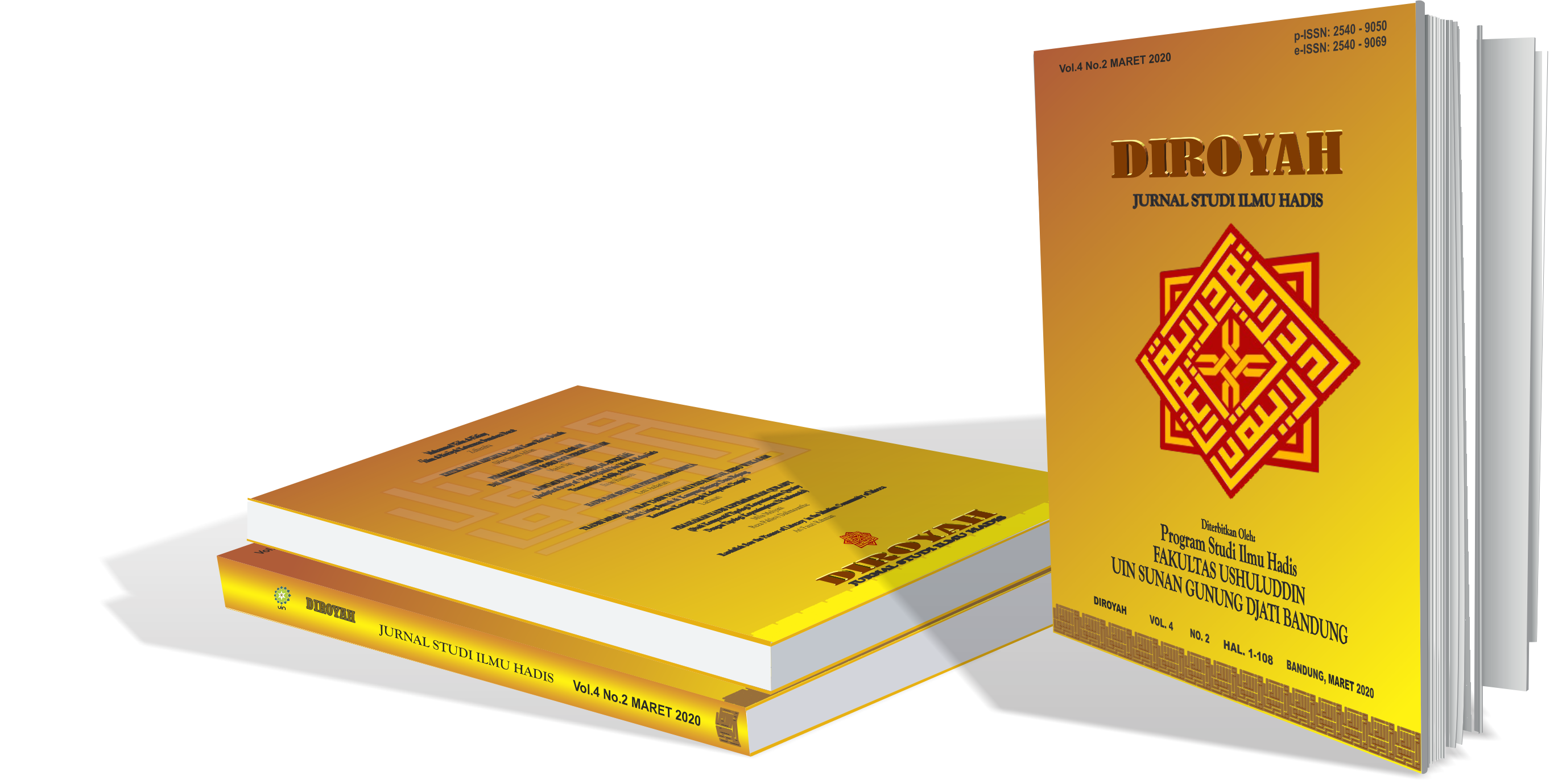Enhancing Pedagogy in Islamic Studies Methodology: A Focus on Hadith Instruction
Main Article Content
Abstract
This study endeavors to investigate strategies for enhancing the pedagogy of Islamic Studies methodology, rendering it more efficacious and pertinent to contemporary requisites, with particular emphasis on advancing the effectiveness of instruction and the progression of hadith studies within the domain of Islamic higher education. The overarching objective is to establish a comprehensive framework governing the methodological approach to the instruction of hadith. The methodological framework adopted in this investigation is inherently descriptive and analytical in nature. Data acquisition was undertaken through the meticulous analysis of scholarly literature, encompassing documentary research, and direct observation of hadith instruction within the precincts of Islamic higher education institutions. A scrupulous evaluation of the construct of Islamic Studies Methodology in the context of hadith pedagogy has unearthed a plethora of inadequacies that necessitate immediate rectification. This study posits a compelling argument for the imperative of reform in the domain of hadith instruction within Islamic higher education. The required initiatives for the amelioration of hadith instruction encompass: (1) A concerted amplification of the focus on the scholarly study of hadith methodology, with a view to fostering an enduring culture of erudition; (2) Augmentation of accessibility to digital resources and traditional Islamic literature; (3) The empowerment of innovation and technology as pedagogical tools to engender a more immersive and captivating learning experience; (4) Advocacy for an interdisciplinary approach to hadith instruction, affording students the opportunity to scrutinize hadith from a multiplicity of disciplinary vantage points; (5) The facilitation of an environment that encourages open discourse and a profound comprehension of the contextual underpinnings of hadith; and (6) The inculcation of the imperative of integrating both normative and historical dimensions in the teaching of hadith, to ensure a more contextualized understanding. These initiatives are anticipated to contribute to the augmentation of the efficacy of hadith instruction within Islamic higher education, providing students with a deeper comprehension of the subject matter and preserving the relevance of hadith in the contemporary milieu.
Article Details
Authors who publish with this journal agree to the following terms:
- Authors retain copyright and grant the journal right of first publication with the work simultaneously licensed under a Creative Commons Attribution-NonCommercial-ShareAlike 4.0 International License that allows others to share the work with an acknowledgment of the work's authorship and initial publication in this journal.
- Authors are able to enter into separate, additional contractual arrangements for the non-exclusive distribution of the journal's published version of the work (e.g., post it to an institutional repository or publish it in a book), with an acknowledgment of its initial publication in this journal.
- Authors are permitted and encouraged to post their work online (e.g., in institutional repositories or on their website) prior to and during the submission process, as it can lead to productive exchanges, as well as earlier and greater citation of published work (See The Effect of Open Access).
References
Abdullah, M. A. (1996). Studi Agama: Normativitas atau Historisitas?. Yogyakarta: Pustaka Pelajar.
Aminah, S. (2016). Metode Studi Islam; Gagasan Pengembangan Metode Studi Islam di Masa Depan. El-Banat, 6(1), 63-79. https://doi.org/10.54180/elbanat.2016.6.1.63-79
Dahlan, M. (2010). Metodologi Studi Islam Kontemporer. Nuansa, 1(2), 148–157.
Danil, M. (2020). Pentingnya Memahani Peran Metodologi Studi Islam Terhadap Generasi Milenial di Era Digitalisasi. Profetika: Jurnal Studi Islam, 21(2), 223–230. https://doi.org/10.23917/profetika.v21i2.13082
Hanafiah, M. (2011). Revitalisasi Metodologi dalam Studi Islam: Suatu Pendekatan terhadap Studi Ilmu-ilmu Keislaman. Jurnal Ilmiah Didaktika, 11(2), 291-305.
Irkhami, N. (2016). Mencari Bentuk Metodologi Studi Islam Berbasis Epistemologi dan Islamic Worldview. Proceeding of International Conference On Islamic Epistemology, 54–62.
Khaidir, P. H. (2019). Urgensi Pendekatan Holistik dalam Metodologi Studi Islam. Al-I’jaz: Jurnal Studi Al-Qur’an, Falsafah dan Keislaman, 1(1), 1–18. https://doi.org/10.53563/ai.v1i1.9
Khoiriyah. (2013). Memahami Metodologi Studi Islam: Suatu Konsep tentang Seluk-beluk Pemahaman Ajaran Islam, Studi Islam dan Isu-isu Kontemporer dalam Studi Islam. Bandung: Sukses Ofset.
Kurnia, A. M. B. (2019). Metodologi Studi Al-Qur’an dan Hadits dalam Pendidikan Islam. Tasyri’, 26(2), 109–128.
Lalu, A. W. (2021). Eksistensi dan Metodologi Pendekatan Filosofis dalam Studi Islam. EDISI, 3(3), 472–488.
Madjid, N. (1997). Tradisi Islam: Peran dan Fungsinya dalam Pembangunan Indonesia. Jakarta: Paramadina.
Minhaji, A. (2018). Masa Depan dan Problem Metodologi Studi Islam. Ulul Albab Jurnal Studi Islam, 3(1), 5–31. https://doi.org/10.18860/ua.v3i1.6076
Nasution, H. (1994). Metodologi Barat Lebih Unggul. Ulumul Qur’an, 5(3), 22-35.
Rahman, F. (1995). Islamic Methodology in History. Islamabad Pakistan: Islamic Research Institute.
Rodliyana, M. D. (2023). Metodologi Penyusunan Hadis Al-Nasai, Menguji Kesahihan Hadis dalam Sunan Al-Nasai. Bandung: Values Institute.
Sahrodi, J. (2008). Metodologi Studi Islam, Menelusuri Jejak Historis Kajian Islam ala Sarjana Orientalis. Jakarta: Panggar.
Saumantri, T., & Hajam, H. (2023). Urgensi Metodologi Studi Islam Interdisipliner Untuk Moderasi Islam. An-Nawa : Jurnal Studi Islam, 5(1), 1–18. https://doi.org/10.37758/annawa.v4i1.57
Sulaiman, R. (2014). Pengantar Metodologi Studi Sejarah Peradaban Islam. Jakarta: Raja Grafindo Persada.
Syam, S. (2015). Metodologi Studi Islam: Jalan Tengah Memahami Islam. Jakarta: Raja Grafindo.
Syaripudin, A. (2018). Metodologi Studi Islam dalam Menyikapi Kontradiksi Hadis (Mukhtalaf al-Hadis). Nukhbatul ’Ulum, 4(1), 379–390. https://doi.org/10.36701/nukhbah.v4i1.31
Umam, H. (2020). Rekonstruksi Formulasi Metodologi Studi Islam. Jurnal Health Sains, 1(6), 680–695. https://doi.org/10.46799/jsa.v1i6.114
Wahid, L. A. (2021). Eksistensi dan Metodologi Pendekatan Filosofis dalam Studi Islam. Edisi, 3, 472–488. Retrieved from https://ejournal.stitpn.ac.id/index.php/edisi/article/view/1426

